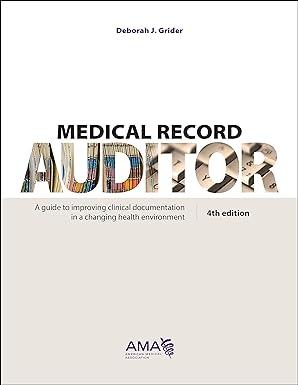Question
The following table represents the business as usual (no abatement) situation for emissions of greenhouse gases in tonnes and the marginal abatement cost functions for
The following table represents the business as usual (no abatement) situation for emissions of greenhouse gases in tonnes and the marginal abatement cost functions for two oil refineries.
|
| Initial Emissions | Marginal Abatement Cost |
| Firm 1 | 2,000 | MAC1 = 2A1 |
| Firm 2 | 750 | MAC2 = 1.5A2 |
| Total | 2,750 | n/a |
(a) The regulatory authority is considering implementing a cap and trade scheme to abate the total emissions of the two refineries by 14 percent. Under such a scheme, how many permits would need to be issued and for what price would they trade? How much abatement will take place at each firm?
(b) Assuming the permits are initially distributed for free based on each firm's share of initial emissions, show the initial permit allocation and any permit purchases/sales needed to reach the final allocation of permits that will result from this scheme.
(c) Calculate TAC and TCC by firm and the industry total under this scheme. Show your results in a table.
(d) Now suppose that instead of a cap and trade scheme the regulator decides to implement an emission tax to accomplish the same 14 percent abatement target. What tax should be charged to accomplish this?
(e) Calculate taxes paid, TAC and TCC by firm and in total under this scheme. Show your results in a table and briefly compare to the cap and trade scheme.
(f) Briefly explain why regulators might prefer the emission tax to the cap and trade scheme as described here.
Step by Step Solution
There are 3 Steps involved in it
Step: 1

Get Instant Access to Expert-Tailored Solutions
See step-by-step solutions with expert insights and AI powered tools for academic success
Step: 2

Step: 3

Ace Your Homework with AI
Get the answers you need in no time with our AI-driven, step-by-step assistance
Get Started


